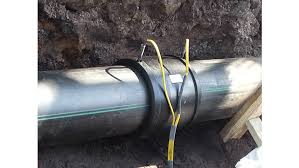Jul . 27, 2024 04:00 Back to list
Leading Manufacturers of High-Quality PVC Pipes for Various Industrial Applications and Home Use
The Production and Significance of PVC Pipes
PVC, or Polyvinyl Chloride, has become one of the most widely used materials in the manufacturing of pipes. In recent years, PVC pipes manufacturing has seen significant growth due to their versatility, durability, and cost-effectiveness. These pipes are integral to various industries, including construction, agriculture, and water supply systems. This article delves into the production process of PVC pipes and explores their significance in modern infrastructure.
The Manufacturing Process
The production of PVC pipes begins with the creation of polyvinyl chloride resin. The process involves blending various raw materials, including chlorine, sodium, and ethylene, in a polymerization reaction. Once the resin is synthesized, it is combined with additives like stabilizers, lubricants, and pigments to enhance performance and appearance.
After preparing the compounded PVC, the next step is extrusion. The compounded material is fed into an extruder, where it is heated and melted. This molten PVC is then forced through a die to create a continuous pipe shape. The diameter of the pipes can be adjusted by using different dies, allowing manufacturers to produce a wide range of sizes to suit different applications.
Once extruded, the pipes are cooled and cut to the desired lengths. Quality control is crucial at this stage, as manufacturers must ensure that the pipes meet industry standards for thickness, strength, and overall quality. Testing for durability, flexibility, and resistance to chemicals and corrosion is also conducted. After passing these tests, the pipes are packaged and shipped to various distributors and retailers.
Advantages of PVC Pipes
pvc pipes manufacturers

One of the most significant advantages of PVC pipes is their durability. They are resistant to corrosion and chemical damage, making them ideal for various applications involving water, sewage, and hazardous materials. Unlike metal pipes, PVC does not rust, which means there is a lower likelihood of leaks and failures over time. This durability contributes to lower maintenance costs for users, a crucial factor for industries and municipalities.
Another major benefit of PVC pipes is their lightweight nature. This characteristic simplifies handling and installation, reducing labor costs and time on construction sites. Additionally, PVC pipes can be manufactured in various pressure ratings, allowing their use in both residential and industrial applications.
Moreover, PVC pipes have excellent insulation properties, which help in minimizing heat loss and maintaining temperature stability in fluid transport. They are also non-toxic, making them safe for drinking water supply systems. This safety feature is particularly important in urban areas where the quality of drinking water is paramount.
Conclusion
The role of PVC pipes in modern infrastructure cannot be overstated. As manufacturers continue to innovate and improve production techniques, the applications for PVC pipes are expanding. From residential plumbing to extensive irrigation systems and industrial piping, PVC has proven to be an invaluable resource.
With their durability, lightweight properties, and cost-effectiveness, PVC pipes offer a viable solution for numerous piping needs. As industries look to achieve sustainability and reduce costs, the demand for PVC pipes is expected to continue its upward trajectory. Thus, PVC pipe manufacturers play a crucial role in shaping the future of construction, agriculture, and water management. Their contribution to efficient infrastructure development is essential for a growing world, underscoring the importance of embracing modern materials like PVC in various projects.
-
High-Quality PVC Borehole Pipes Durable & Versatile Pipe Solutions
NewsJul.08,2025
-
High-Quality PVC Perforated Pipes for Efficient Drainage Leading Manufacturers & Factories
NewsJul.08,2025
-
High-Quality PVC Borehole Pipes Durable Pipe Solutions by Leading Manufacturer
NewsJul.08,2025
-
High-Quality PVC Borehole Pipes Reliable PVC Pipe Manufacturer Solutions
NewsJul.07,2025
-
High-Quality UPVC Drain Pipes Durable HDPE & Drain Pipe Solutions
NewsJul.07,2025
-
High-Quality Conduit Pipes & HDPE Conduit Fittings Manufacturer Reliable Factory Supply
NewsJul.06,2025

